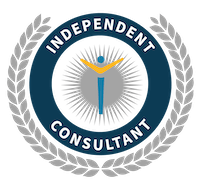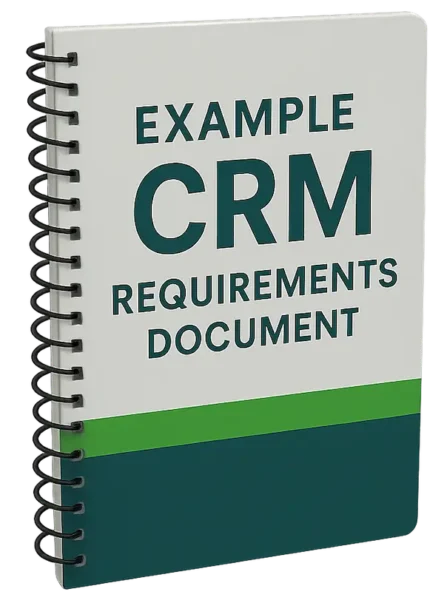Open-source is a software development philosophy in which source code is made freely and openly available to the general public.
Any interested party can download the code, modify it to their heart’s content, use it how they see fit, and, if they wish, distribute their modified version for others to use.

Large amounts of openly available code can make it easier to start developing complex applications. A lot of the heavy lifting has already been done, and development teams need to tweak the code for their purposes. Most software, even privately developed programs, are built on at least some code from open-source libraries.
Like other developers, CRM vendors also take advantage of open-source libraries. Some CRMs are entirely developed as open-source, while others are hybrid open-source and privately developed code.
While some compelling reasons exist for choosing open-source CRM, some limitations exist. Understanding both is crucial when deciding between open-source and proprietary CRM.
Advantages of Open Source
Open-source CRM offers several benefits that you may be able to take advantage of. Of course, these are only advantages if you have the resources to exploit them.
Free or Low-Cost
Most open-source applications are available to you at no cost. Some developers offer higher levels of support with a paid fee, but the basic code is yours for nothing. If you have the time and the talent to modify the code for your needs, you can save a lot on licensing fees.
Customizable
Open-source code is meant to be torn apart, tinkered with, and rebuilt. Your team can take the source code and turn it into whatever you need.
If you know exactly what you’re looking for and don’t want a lot of extraneous parts, then open-source CRM may be for you.
No Commitment
Commercial CRM vendors typically require a licensing commitment of at least a few months. This could leave you paying for a system you don’t like or don’t use. With open-source CRM, there are no time commitments. You can use it for as long as you like and quit using it without fear of penalties.
Disadvantages of Open Source
Every CRM system is going to have its limitations. Open-source CRM has limitations that are particular to its underlying design philosophy.
Limited Support
Open-source CRM vendors don’t offer much support for their free versions. While there are some options for paid support, you might as well buy the CRM if you’re going to go that route. Most of your support with open-source will come from developer forums that might not respond quickly or accurately.
Fewer Functions
Open-source CRM may not be your best bet if you’re looking for all the bells and whistles. People conduct much of the development during their spare time, so the focus is more on critical functions than slick GUIs and robust integrations.
Perfection Paralysis
Assuming that you have onsite devs who can tweak your open-source CRM, there’s a chance that they’ll constantly be tweaking it.
Eventually, you need a system that works and fills most of your needs. If your dev team is continually “fixing” things, the system is never complete, and your employees may continuously adapt to the latest “fixes.”
Worse yet, your employees may start bugging the dev team for new functions and features that weren’t on your list, further delaying completion.
Examples of Open-Source CRM
There are more than a few open-source CRM vendors on the market today; here are some better-known ones.
- Vtiger – Offers features like lead management, email marketing, and project tracking. While Vtiger also has a paid version, its open-source edition remains a solid option for small businesses.
- Odoo CRM – Part of the Odoo suite of business applications, this CRM is open-source in its community edition. It includes pipeline management, lead tracking, and integration with other Odoo modules like invoicing or inventory.
- SuiteCRM – A widely-used open-source CRM that offers features like sales automation, customer support, marketing campaigns, and reporting. It’s highly customizable and can be tailored to suit various business needs.
- OroCRM – Focused on e-commerce and B2B businesses, OroCRM provides tools for managing sales channels, customer data, and analytics. It’s highly extensible and built for scalability.
Who Benefits From Open-Source?
Open-source CRM can benefit any company, but it would probably enhance its utility in some situations.
Small companies and startups may not need as many bells and whistles as they need to save capital. For those businesses, free or low-cost open-source CRM may be a good way to get critical functionality without paying for all the trimmings.
On the other hand, businesses with a robust development team on site could benefit from the ability to customize an open-source CRM solution fully.
However, you should remember that not all development experience is the same.
Experience developing apps for your customers may not translate into the ability to create the ideal CRM for your company. Also, an in-house team does run the risk of facing perfection paralysis.
Time Sink Or Saver?
Like any CRM system, you should have well-defined criteria for what you expect from the software. You should have clear reasons for why you want CRM, what you expect the benefits to be, and how success will be measured. Treat open-source CRM with the same care you would give any large software implementation, and it will offer real solutions for your business.
Open-source CRM is only a pet project if you treat it as one. Even if it’s free, open-source CRM will likely require significant time and energy.
If that time and energy aren’t properly focused, it will be as wasted as if it had been spent on a pet project.



